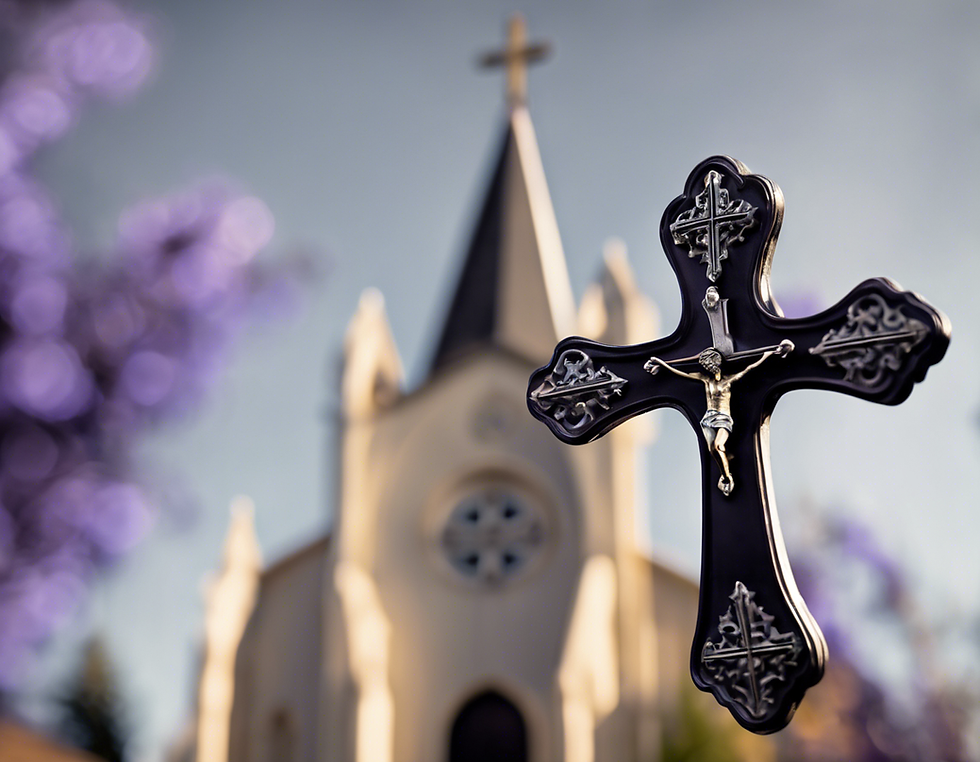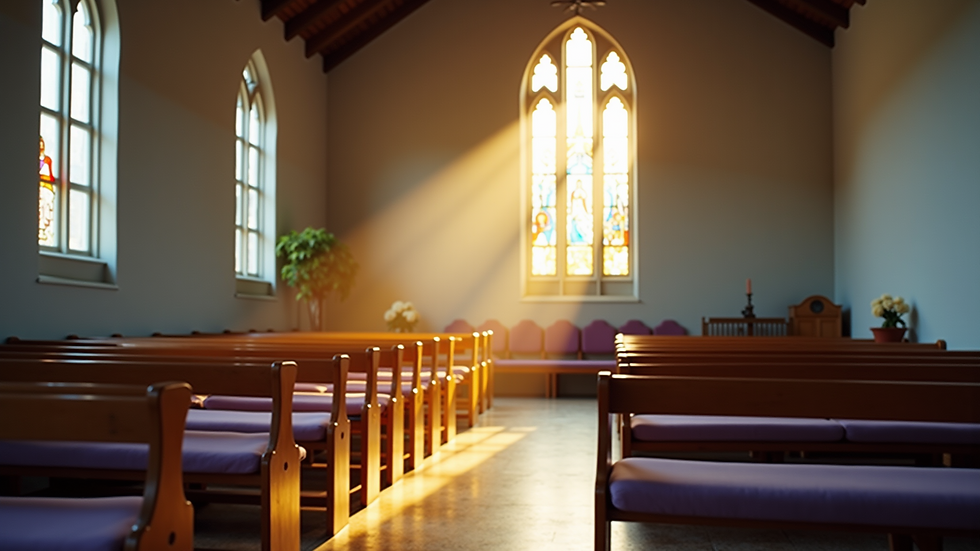What does the sabbath look like for those in ordained ministry?
- B. Shawan Gillians
- Jul 6
- 3 min read
Updated: Jul 15

When we think of the sabbath the vast majority of Christians (certainly those in western hemisphere) imagine Sundays. But if the sabbath is supposed to be about rest what does that mean for those in ordained ministry who are clearly working on Sundays? Yes, your pastor/priest is no less at work in the pulpit than you are behind your desk or wherever you may work. Does God intend to exempt the ordained from the requirements and benefits of the sabbath?
It seems unreasonable to think God doesn’t intend ordained ministers to rest. Since the time of Moses it has been clear that there is a need for ordained ministers to work in partnership to serve the people of God. Moses’ father-in-law Jethro is the first to identify this need for rest.
The next day Moses sat as judge for the people while the people stood around him from morning until evening. When Moses’ father-in-law saw all that he was doing for the people, he said, ‘What is this that you are doing for the people? Why do you sit along, while all the people stand around you from morning until evening?’ Moses said to his father-in-law, ‘Because the people come to me to inquire of God. When they have a dispute, they come to me and I decide between one person and another, and I make known to them the statutes and instructions of God.’ Moses’ father-in-law said to him, ‘What you are doing is not good. You will surely wear yourself out, both you and these people with you. For the task is too heavy for you; you cannot do it alone.’
Exodus 18: 13-18 [NRSV]
This acknowledged need for rest amongst ministers extends into the New Testament with Jesus and his apostles
The apostles gather around Jesus, and told him all that they had done and taught. He said to them, ‘Come away to a deserted place all by yourselves and rest a while.’ For many were coming and going and they had no leisure even to eat. And they went away in the boat to a deserted place by themselves.
Mark 6: 30-32 [NRSV]
So, if we know ministers need rest and we know the sabbath is God’s gift of rest to us, how do we make those two things come together? I think the first thing we have to acknowledge is that the concept of days, weeks, and months we are accustomed to in the Gregorian calendar didn’t exist before 1582. Rather than tying the sabbath to Sunday I prefer to think of the sabbath in seven-day cycles. The point is not to go more than six days without observing a sabbath, a day of rest.
This would seem to make the solution easy enough – ministers should just take a day of the week other than Sunday as a sabbath. Ah! If only parishioners’ emergencies would take note of the day of the week! And yet, illnesses, deaths, and any other number of things for which the pastor gets called will happen without regard to the pastor’s sabbath. In a large church with a larger ministerial staff this may be managed by assigning a member of staff to be ‘on call’ for emergencies. This gets to be more complicated in a small church, and even more complicated with a bi-vocational pastor (a pastor with a primary stream of income derived from work outside the church). But there are many resources out there that address this subject, which is beyond the purview of this post.
The point here isn’t the mechanics of how you make space for the sabbath as a minister; the point is that you must make space for the sabbath as a minister!
Of course, there will be times when the presence of the spiritual leader of a church is expected, but if you are too worn out to be in good form when you get there then what’s the point? There is also some value in allowing your parishioners, with proper training and oversight, to serve one another and thereby grow in the ministry of all baptized believers.
If you’re in ordained ministry, your plan for observing the sabbath is as important as an executive’s emergency business continuity plan, or a family’s emergency evacuation plan. Make one!
And if you’re a parishioner, do yourself and your pastor a favor and by all means call if you must, but carefully evaluate if you must in fact make that call.
Stop by next week when I spend a little time wrapping up what all this talk about observing the sabbath means for us in our modern lives.
Go in peace to love and serve the Lord!




Comments